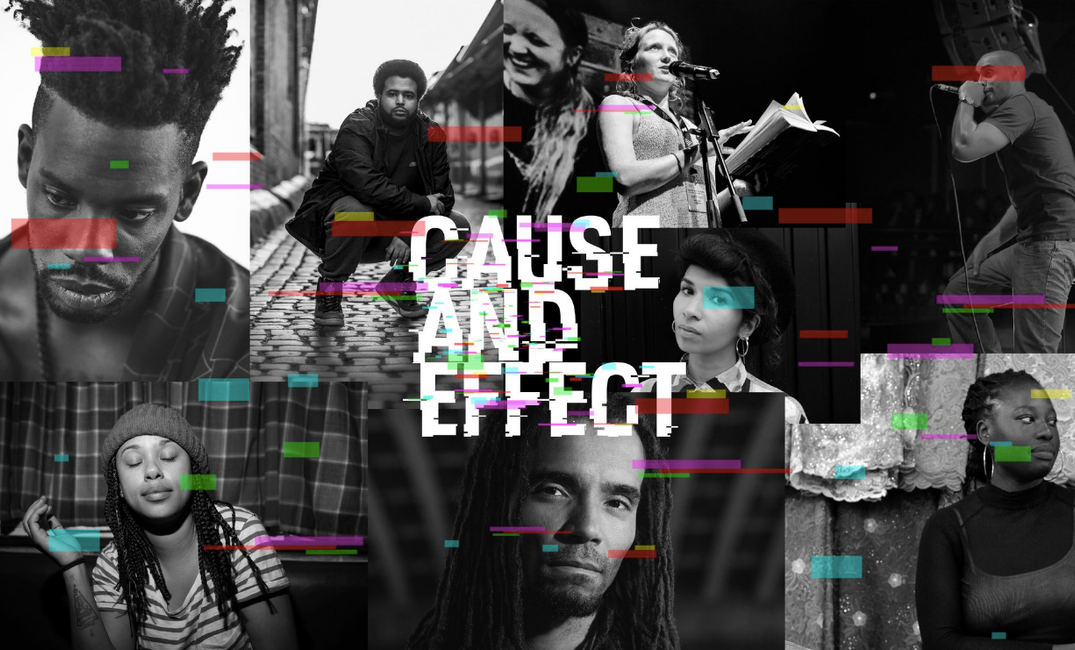Maheen Behrana
Naked Politics Blogger
What do you think of when you think of war? Chemical weapons, mass airstrikes, news coverage of displaced refugees – they can often seem far removed from the warfare as we imagine happened during the First World War.
Most of what we have traditionally heard about the First World War has been about soldiers and battles conducted in ways very different from modern combat. We have the poetry and the long-established symbol of the poppy, but sometimes these things don’t immediately seem to be linked to the way life is today for young people in the UK.
This Armistice day, to commemorate one hundred years since the armistice that brought about the end of fighting in the First World War, a new project challenges this idea. Cause and Effect is a collection of modern music and spoken word pieces which tries to bring those connections between then and now together.
Lowkey – Refuse2Kill
Lowkey’s song looks at the conscientious objectors – the people who refused to take part in armed combat and were usually punished for it – during the First World War. He also mentions several famous pacifists throughout the course of the song, and the second person mentioned is not a man, but a Polish-German woman called Rosa Luxemburg. Luxemburg co-founded the anti-war Spartacus League in Germany in 1915, and was executed after the war had ended by the paramilitary Freikorps for her pacifist beliefs.
Lowkey’s message is instantly clear: all lives, whatever gender, whatever nationality, have been casualties of war and the pugilistic mentality it can give rise to. Even lives that are defined by the promotion of peace are victims of the mentality of war. Towards the end of the song, after outlining several notable pacifists, Lowkey references Joe Glenton, a modern-day anti-war campaigner who used to be a soldier in Afghanistan. He makes no distinction between the way he talks about Joe and all those from 100 years ago. People have always and will always continue to push back against the horrors of conflict.
Hollie McNish – War’s Whores
Hollie’s spoken word piece is all about the little-discussed topic of sex-workers during the First World War. Sex work was pretty frequent during the war – brothels sprung up and were even legitimately set up near sites of conflict. The mass spread of STIs during the war isn’t something you normally hear about, but as Hollie makes clear, it was very much a reality. We know all about the men who fought on the frontline; they have gone down in the history books. But these were the women on the frontline too, experiencing their own horrors, sometimes their own little wars, linked to the larger one.
Hollie says that ‘For none, a name, mention, medal, thanks’ and whilst it is true that this war has erased the lives of the sex-workers who were part of it, it is not hard to see that even today we live in a society which tries to erase sex-workers and play down their fight for decriminalisation. Often, sex-work is the only option many victims of war have and sex itself is often used as a weapon of war. It is an integral part of life, and so is an integral part of warfare. War’s Whores make us see those links, and confront the reality of the forgotten women who were and continue to be erased from our history and from our national consciousness.
Bridget Minamore – 100 Years of Conversation
The movement for female equality is still continuing. Bridget’s use of repeated phrases suggests that there has been a continuity of inequality, rather than any real progress, in the kind of national debates we were having one hundred years ago and now. There are currently exceptions to the supposed rule of universal adult suffrage (like incarcerated people, people without a fixed residence, women in refuges), she tears into the classism and elitism at the heart of the original fight for women’s suffrage.
And while women’s contributions in the First World War were crucial to securing the vote for women over thirty in 1918, there was a huge amount of snobbery at the heart of the suffragette movement. The war may have been captured in your history books as a great leveller, but increased suffrage cannot be treated as evidence of increased equality in general. The right to vote quite clearly and deliberately does not touch everyone – and it’s still true today.
If someone must have a fixed address to vote, then that means people without a home don’t have a right to suffrage. It is a system that would prefer to erase the most disadvantaged and dispossessed rather than accommodating them. Just as suffrage was clearly not universal then, it is clearly not universal now. It is the same problem, for a different time, but that time appears not to be so different after all.
***
Grainy old pictures of men in trenches is normally what we think of during remembrance. But, these amazing visual pieces show that there is so much the younger generations can take from what happened then, and help us understand our reality now.

